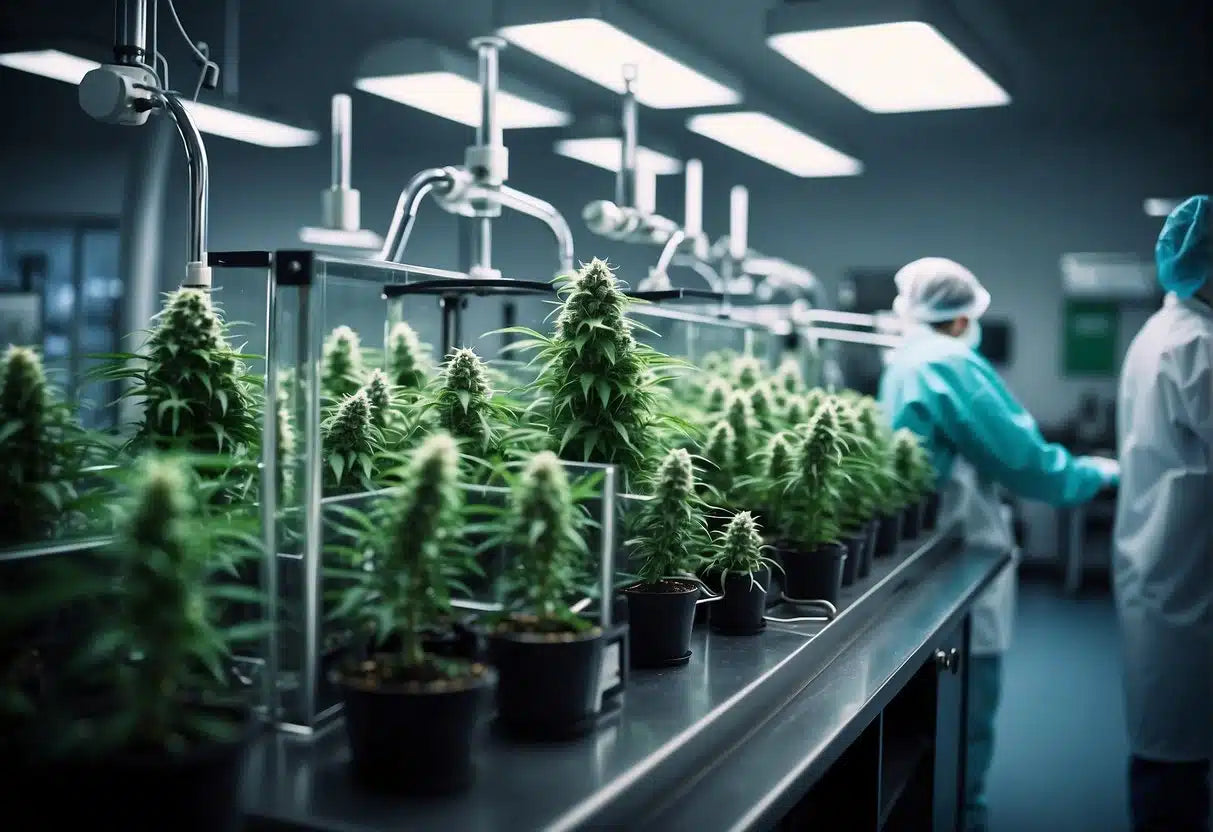Article: What is THCA?

What is THCA?
What is THCA? A Comprehensive Guide to this Non-Psychoactive Compound
THCA (tetrahydrocannabinolic acid) is a non-psychoactive compound naturally occurring in raw cannabis plants. In contrast to THC (tetrahydrocannabinol), which is responsible for the psychoactive effects associated with cannabis consumption, THCA does not induce a "high" when ingested. Acting as the precursor to THC, THCA undergoes conversion to THC only when subjected to heat, such as through smoking or vaporization. In recent years, THCA has garnered attention for its potential therapeutic properties, including pain alleviation, anxiety reduction, and neuroprotective effects.
How Does THCA Work in the Body?
THCA operates within the body by engaging with the endocannabinoid system (ECS). This intricate cell-signaling system regulates various bodily functions, including mood, appetite, and immune response. Comprising endocannabinoids, receptors, and enzymes, the ECS orchestrates physiological balance. Endocannabinoids are internally synthesized compounds facilitating bodily regulation. Receptors, found on cell surfaces, bind to specific molecules, initiating cellular responses. Enzymes, meanwhile, are responsible for metabolizing endocannabinoids after their action.
THCA interacts with the ECS by binding to CB1 and CB2 receptors distributed throughout the body. Displaying a greater affinity for CB1 receptors, predominantly situated in the brain and nervous system, THCA modulates neurotransmitter release, influencing mood, cognition, and pain perception. Additionally, THCA exhibits affinity for CB2 receptors, primarily located in the immune system, contributing to the regulation of inflammation and immune response.
Potential Health Benefits of THCA
While further research is warranted to fully elucidate the therapeutic potential of THCA, preliminary findings suggest it may offer relief for various health conditions, including:
Pain Management: THCA demonstrates analgesic properties, presenting a potential natural alternative to conventional pain medications. Anxiety Mitigation: THCA exhibits calming effects on brain function, indicating potential utility in anxiety and stress management. Neuroprotection: THCA displays neuroprotective qualities, shielding the brain and nervous system from oxidative stress-induced damage. How to Use THCA
THCA can be consumed through multiple routes, including raw cannabis juice, tinctures, and capsules. It's essential to note that THCA lacks psychoactive effects, thus avoiding the "high" associated with THC. However, cautious consideration of dosages and potential side effects is advisable.
Potential side effects of THCA may include dry mouth, dizziness, and fatigue. Additionally, THCA may interact with certain medications, underscoring the importance of consulting with a healthcare professional before integrating THCA into a treatment regimen.
Conclusion
THCA represents a non-psychoactive compound present in raw cannabis plants, garnering attention for its potential therapeutic utility. Through interaction with the endocannabinoid system, THCA modulates various bodily functions, offering promise in pain management, anxiety reduction, and neuroprotection. While ongoing research is essential for a comprehensive understanding of THCA's benefits and risks, it emerges as a natural remedy for addressing pain, anxiety, and neurological concerns. As with any natural intervention, consulting a healthcare professional is advisable before incorporating THCA into a wellness routine.

